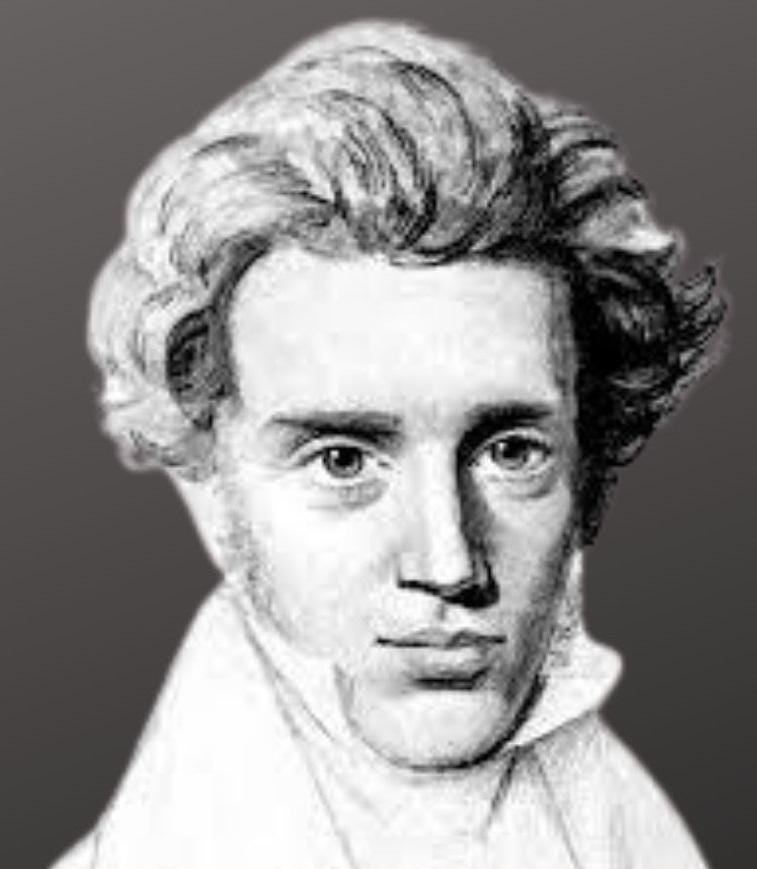Boredom unto Death
I’m a sucker for near-future dystopian novels. Favorites like Brave New World, Father Elijah, Eclipse of the Sun, Fahrenheit 451, Exogenesis, and Love in the Ruins all critique the Machine in various ways. I suspect my own critique of the Machine is shaped more by these works than by any philosophical or cultural essay. Recently, as I began writing this Substack, I revisited some of these novels, hoping they’d inspire Savage Collective essays.
I recently finished Player Piano by Kurt Vonnegut. Along with Jack Kerouac, Vonnegut had the biggest influence on my early literary tastes. My father owned nearly all of his novels in beat-up paperbacks, tucked away on basement shelves. For a 14-year-old boy, his novels felt so transgressive—especially the curious pencil drawings of beavers in Breakfast of Champions. I’m not sure if I really got what he was up to but I knew it was thrilling. I can’t recall exactly when I first read Player Piano, and as I re-read it as an adult, I have to admit I remembered very little of it.
Player Piano is set in a near-future United States after a civil war, where machines have replaced almost all human labor. The only jobs left are for managers and engineers who design and maintain the Machine system. Paul Proteus, "the most important, brilliant person in Ilium," is the 35-year-old manager of the Ilium Works. As time passes, he becomes disillusioned with the Machine economy, concerned that it has drained the spirit of working-class Americans, whose livelihoods have been made redundant and who are pacified with cheap consumer goods. Eventually, Proteus quits his job and joins the Ghost Shirt Society, a neo-Luddite rebellion aiming to overthrow the Machine and return control of production to the workers. In the end, the rebellion fails, and Paul comes to believe the Machine system is inescapable.
The Ghost Shirt Rebellion is made up of former managers, engineers, and professors who, like Paul, have grown disillusioned with the system. However, their numbers are small. As I read, I found myself wondering what exactly opened Paul’s eyes—and those of his fellow rebels—to the true evils of the Machine, while others in their same positions remained blind to it.
Brandon and I have been writing this Substack for two months, and we've been encouraged by the conversations with other anti-Machine Savages. Still, I’m struck by how few people seem to recognize the dehumanizing nature of the Machine. I feel this most when I realize my teen daughter is one of the only girls in her class without a smartphone or social media access, even in a school with a cell phone ban and thoughtful parents. I wonder what these parents are thinking—are they not reading what I’m reading? Do they not see what I see? Haven’t they watched Wall-E? Do they not care? Are they just tired? It makes me question why some people wake up to the threat of the Machine while others don’t.
A recurring theme throughout Player Piano is boredom. In the very first chapter, Vonnegut introduces Proteus as someone trapped in boredom. Proteus wistfully imagines about how great it would have been to have fought in the civil war, which would have allowed him to appreciate the comfort of the Machine society. But instead, “his job, the system, and organizational politics had left him variously annoyed, bored, and queasy.” Likewise, the Ghost Shirt Society’s strategy was to awaken those displaced by the machines to the boredom inherent in a Machine society. The leadership of the Ghost Shirt Society discuss how they will encourage the working class to join them in their anti-Machine crusade.
Lasher: “On paper, we don't look like much. Actually, with our people placed right, we have a tremendous potential in fellow travelers."
Proteus: "How many do you suppose will follow?"
Lasher: "As many people as are bored to death or sick of things the way they are”
Finnerty "All of 'em!"
I’m starting to believe that boredom is key to sparking resistance to the Machine. It acts as a catalyst, transforming cogs and managers into Savage rebels. To understand this, we need to unpack the term a bit. “Boredom" is used in various ways, both in academic literature and everyday language. One way to understand boredom is as a episodic emotional experience tied to a specific event or activity—episodic and often negatively interpreted. As well-known psychologist Dr. John Eastwood describes it this way: boredom is "the aversive experience of wanting, but being unable, to engage in satisfying activities." Psychological literature typically views boredom as an episodic, negative state called “situational boredom.” Given this understanding, it would make sense that we would want to avoid or alleviate feelings of boredom. Modernity offers countless opportunities and resources for both avoidance and alleviation—through entertainment, technology, and consumer distractions—making it easier to escape boredom rather than confront or learn from it. If avoidance or alleviation is not possible, we seek to endure feelings of boredom.
However, situational boredom is not the only way to understand the concept, nor is it the way Vonnegut uses the term. While Proteus encounters many mundane experiences, he grapples with a deeper, more profound form of boredom. German philosopher Martin Heidegger suggests that beyond situational boredom, there is a more fundamental, existential form of boredom. This “profound” boredom is not tied to any specific activity but reflects a deeper unease or queasiness with life itself. It is what we experience when we are caught up in the drab, monotonous, everydayness of the modern world. It is this profound boredom that ultimately drives Proteus to rebel against the Machine.
Profound boredom should be understood not as a basic emotion like sadness or fear but as a more complex, "functional" emotion. Unlike situational boredom, which psychologists often view as inherently negative, functional emotions like profound boredom are neutral and serve an informative role, even if they are unpleasant. Just as pain signals that something is wrong with our bodies, boredom signals a deeper issue with our souls. It acts as a form of existential despair, highlighting that the life we are leading feels purposeless and meaningless.
Boredom can indeed be a catalyst for significant change in our lives. Søren Kierkegaard observed that “Everyone who feels bored cries out for change.” When we are attuned to our boredom, it can prompt us to make necessary changes. As we’ve discussed in previous posts, human beings are both subjects and objects of action; we act in the world and are acted upon by it. Thus, boredom can originate from within us or be a response to external sources. It’s possible to inhabit a world full of meaning and still experience it as boring. When my kids complain of boredom, I often say, “Only boring people get bored.” While this is true to some extent, we also live in a world stripped of many historical systems of meaning. Despite our best efforts, my children will inevitably encounter moments when the world seems exceptionally meaningless. Understanding the source of this boredom can help guide our response.
Paul Proteus realized that the Machine world he had helped create was both meaningless and dehumanizing. This recognition compelled him to act against it. The first step in his journey was acknowledging the profound boredom he experienced. According to Heidegger, this involves what he calls "attunement"—a process of being awakened to the deeper existential issues at play. By recognizing his profound boredom as a signal of a deeper problem, Proteus was able to confront and challenge the Machine system, ultimately seeking to change his life and the world around him.
While understanding how boredom operates is one thing, becoming attuned to profound boredom in our own lives and responding with meaningful change is another. This is where the transformative role of epiphanies becomes relevant. Epiphanies are "illuminating discoveries, realizations, or disclosures" that help us become aware of the profound boredom we are experiencing. These moments of clarity and insight disrupt the repetitive stuckness of profound boredom and can reveal deeper meaning and purpose. Through such epiphanies, we gain the awareness needed to address and transform our sense of existential dissatisfaction.
Unfortunately, epiphanies are challenging to manufacture. In novels, they often seem to come unexpectedly. For instance, it's not entirely clear how Proteus became attuned to his profound boredom; his decision to quit his job and buy a farm occurs somewhere around Chapter 14, but it's hard to pinpoint the exact page or reason for this shift. We must position ourselves to be open to such epiphanies. This involves being more present and mindful in our lives, reading insightful books, and surrounding ourselves with people who have navigated and overcome their own ennui. We should also confront our situational boredom, examine it closely, and understand what it reveals about our loss of purpose and meaning.
In the modern world, awakening to profound boredom is a significant challenge. We must first experience situational boredom deeply enough for it to transform into a profound sense of dissatisfaction that compels us to act. However, contemporary culture is designed to alleviate situational boredom through constant distractions like smartphones, television, and other media. Ironically, this constant bombardment of distractions pushes us away from recognizing the underlying meaninglessness of contemporary life. Instead of confronting our profound boredom, we are often led into a state where we are continuously distracted from the deeper existential issues that might otherwise prompt us to seek change. This is what Heidegger called “contemporary” boredom arguing that it was unique to an industrial, Machine society.
Ultimately, epiphanies seem to be a form of grace—an unmerited gift that we can be open to but cannot control. Perhaps this is why the Ghost Shirt Society failed: the working class had not received the necessary grace to see their profound boredom for what it was, as they were too distracted by cheap consumer goods. I ended the novel with a sense of sadness about the inevitability of Machine dominance but also with patience for those whose eyes have not yet been opened. I think we are called to persuade and encourage, while ultimately accepting that the epiphany is not ours to give.





This is great! Love the nod to my boy SK.
RIP to the GOAT on boredom, David Foster Wallace, this day in 2008